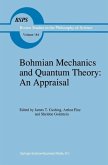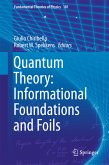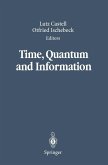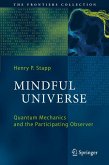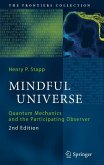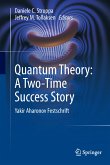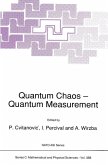Dieser Download kann aus rechtlichen Gründen nur mit Rechnungsadresse in A, B, BG, CY, CZ, D, DK, EW, E, FIN, F, GR, HR, H, IRL, I, LT, L, LR, M, NL, PL, P, R, S, SLO, SK ausgeliefert werden.
Hinweis: Dieser Artikel kann nur an eine deutsche Lieferadresse ausgeliefert werden.
'The general theory of Quantum Mechanics is often hidden behind the applications in the more famous books like Sakurai, Gasiorowitz etc. As a student of QM I never understood what all the fuzz was about until I read Peres' wonderful book. By starting from experimental facts he shows in a clear way which concepts are necessary for QM and what the theory actually implies on the real world. It is by far the best introduction to QM and the best self-study book. Most of the other books I've looked at talk too much about certain applications to special fields of physics and fails to give any general understanding of the subject. Quantum Theory: Concepts and Methods should be the given choice for any introductory course in QM, not because it is easy or simple but just because there are no better books!' -- Albinth, Stockholm, Sweden
'This must be about the tenth introductory book on quantum mechanics I've read. It is, quite simply, the best of the lot of them (Merzbacher, Messiah, Bohm, Schwabl,...). I would especially recommend this book to philosophers who are looking to get into the philosophy of quantum mechanics, since it deals with conceptual aspects as well as standard material (there's even some stuff on quantum computation in here!). What you get here is the Hilbert space formalism which is essential for philosophers of physics and advanced researchers in physics. I would even recommend this book to 1st year undergraduates - it's certainly accessible enough. It is precisely this accessibility that is the best feature of this book. Peres is clearly an excellent teacher. Also, if your looking for a self-study book then this is much better than any of the other standard books, it is a much more intuitive and fresh approach.' -- Dean Rickles, Leeds, UK
Studies in History and Philosophy of Modern Physics, 28:1 (1997)
`The general theory of Quantum Mechanics is often hidden behind the applications in the more famous books like Sakurai, Gasiorowitz etc. As a student of QM I never understood what all the fuzz was about until I read Peres' wonderful book. By starting from experimental facts he shows in a clear way which concepts are necessary for QM and what the theory actually implies on the real world. It is by far the best introduction to QM and the best self-study book. Most of the other books I've looked at talk too much about certain applications to special fields of physics and fails to give any general understanding of the subject. Quantum Theory: Concepts and Methods should be the given choice for any introductory course in QM, not because it is easy or simple but just because there are no better books!'
Albinth, Stockholm, Sweden
`This must be about the tenth introductory book on quantum mechanics I've read. It is, quite simply, the best of the lot of them (Merzbacher, Messiah, Bohm, Schwabl,...). I would especially recommend this book to philosophers who are looking to get into the philosophy of quantum mechanics, since it deals with conceptual aspects as well as standard material (there's even some stuff on quantum computation in here!). What you get here is theHilbert space formalism which is essential for philosophers of physics and advanced researchers in physics. I would even recommend this book to 1st year undergraduates - it's certainly accessible enough. It is precisely this accessibility that is the best feature of this book. Peres is clearly an excellent teacher. Also, if your looking for a self-study book then this is much better than any of the other standard books, it is a much more intuitive and fresh approach.'
Dean Rickles, Leeds, UK



